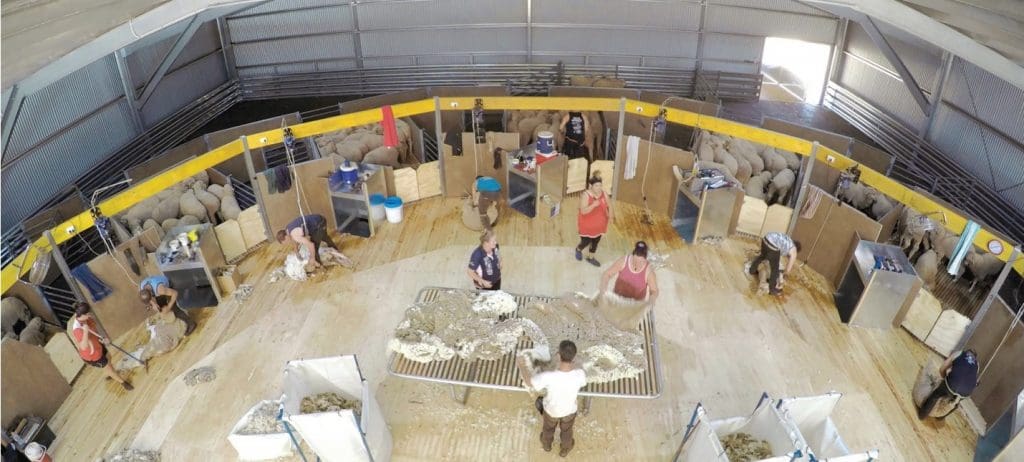
SHEARER availability has improved with the recent drop in sheep meat prices and changes in the national flock’s makeup, but the industry is continuing to work on expanding on visa options for overseas-based workers.
Shearing Contractors Association of Australia chief executive officer Jason Letchford said the shearing supply issue has been “tipped on its head” with sheep meat prices plummeting and high grain prices resulting in a decimated demand for sheep into the feedlot market.
“In turn, this has resulted in many more shearers being available much sooner during the normally the busy Spring season,” he said.
The October Meat & Livestock Australia Sheep Producer Intentions Survey shows that although 34 percent of the producers surveyed expect to have more lambs next year, with 50pc set intending to expand their sheep operation, 46pc of respondents said they are likely to have fewer lambs next year. The producers likely to have fewer lambs cited factors including drought (37pc), increased input costs (27pc), poor operating conditions (27pc), wool price volatility (21pc) and shifting to more cropping (15pc).
A comparison of the October 2023 survey results with those in 2022 indicates that more producers are moving to shedding sheep production. The percentage of the respondent lamb flock that were shedding sheep in 2022 was 4pc, but this rose to 5pc in the latest survey. And the number of surveyed producers with shedding sheep rose from 15pc in 2022 to 17pc this year.
Still a need for a short-term visa for shearers
Mr Letchford said fluctuations in shearer demand highlight the need for a 90-day visa for overseas workers to come in during the industry’s busy periods and leave when it not.
This would ensure better employment prospects for domestic shearers in the shoulder and lower demand periods, he said.
Mr Letchford said as a member of the National WoolTAG committee, SCAA has pushed to have ‘shearing’ added to the Short-term Skilled Occupation List (STSOL) so that it would be ‘more eligible’ for the 400 Short-Term Skilled Visa.
“This is generally a 90-day visa, which makes good sense for such a seasonal industry, better than the 494 which is the only visa shearing is eligible for,” he said.
Shearers can currently apply for, and are not ineligible for, the 400 visa, but it is on a case-by-case basis, Mr Letchford said.
WoolTAG chairman Don Macdonald said recognition of shearing on the STSOL is very important to the industry. Mr Macdonald said he knew an example of an overseas worker who got stuck in Australia during COVID and after going to a shearing school “and is now he’s shearing 200-300 sheep a day and loving every minute of it and they want to kick him out.” The shearer was unsuccessful in getting his contractor to sponsor his extended stay in Australia.
“So that’s why we need to continue to push to have shearing recognised as skill shortage,” Mr Macdonald said.
“So we can get people like that who are already trained up and contributing to the workforce, but can’t stay here.
“It’s very important.”

HAVE YOUR SAY